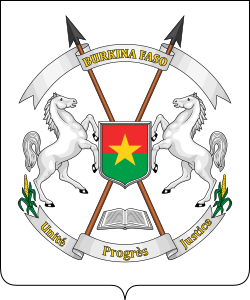 |
|---|
Territorial Assembly elections were held in French Upper Volta on 30 March 1952. [1] The result was a victory for the Voltaic Union (UV). [2]
 |
|---|
Territorial Assembly elections were held in French Upper Volta on 30 March 1952. [1] The result was a victory for the Voltaic Union (UV). [2]
The Territorial Assembly had 50 seats, with 10 elected by the First College (French citizens) and 40 by the Second College (non-French citizens). [3]
| Party | First College | Second College | Total seats | |||||
|---|---|---|---|---|---|---|---|---|
| Votes | % | Seats | Votes | % | Seats | |||
| Voltaic Union | 122,817 | – | 13 | 13 | ||||
| Social and Economic Action | 45,502 | – | 8 | 8 | ||||
| Rally of the French People | 18,699 | – | 6 | 6 | ||||
| Independents of Lobi Country | 10,550 | – | 3 | 3 | ||||
| African Democratic Rally | 2,488 | – | 0 | 0 | ||||
| Social and Economic Development | 597 | 10 | 10 | |||||
| Union for the Defence of the Interests of Upper Volta | 7 | 7 | ||||||
| Ethnic Party of Gourma | 3 | 3 | ||||||
| Other parties | 0 | 0 | 0 | |||||
| Total | 10 | 40 | 50 | |||||
| Total votes | 929 | – | 207,112 | – | ||||
| Registered voters/turnout | 1,583 | 58.69 | 351,513 | 58.92 | ||||
| Source: De Benoist [1] | ||||||||